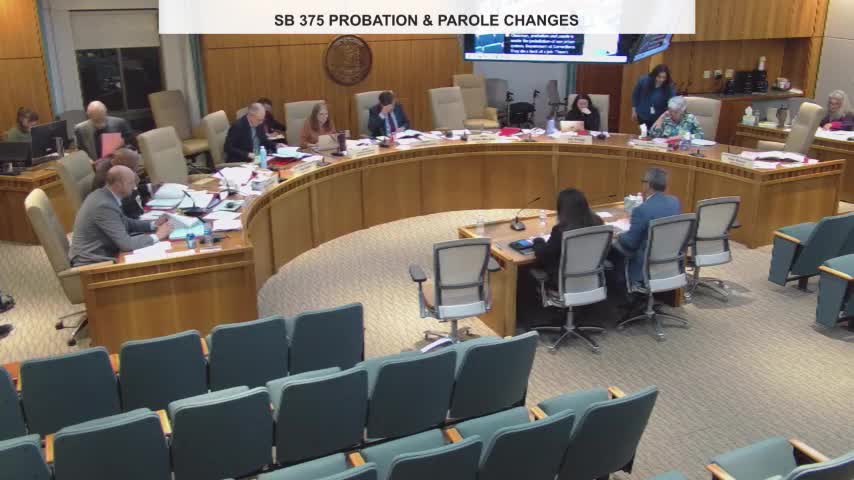Committee advances probation and parole reforms aimed at reducing recidivism and fees
Get AI-powered insights, summaries, and transcripts
Subscribe
Summary
Senate Bill 375 would eliminate parole fees, introduce larger good-time incentives for nonviolent offenders, and change how good time is calculated and administered. The Sentencing Commission gave unanimous support and the committee voted to pass.
The Senate committee advanced Senate Bill 375, a set of changes to probation, parole and in‑custody "good time" policies that sponsors said are designed to reduce recidivism, remove financial barriers and focus supervision resources on higher‑risk individuals.
Sponsor Senator Maestas said the bill eliminates parole costs, creates larger good‑time incentives for nonviolent offenders, and restructures how good time is calculated so that incarcerated people and their families have a clear, predictable projected release date. "This bill does just that," Maestas said, describing both the removal of fees and the administrative changes to make good-time accounting simpler and more transparent.
Nut graf: supporters argued the changes free up scarce supervision resources for higher‑risk cases and increase certainty for those completing programming; the Department of Corrections and the Sentencing Commission supported the legislation.
Department of Corrections officials explained that the bill would replace monthly incremental good‑time accrual with a system that sets a known projected release date and that the department will calculate good time administratively to reduce confusion. Secretary Lucero Tafoya said the approach preserves existing opportunities for program credits and discretionary awards while making release dates easier to track.
The Sentencing Commission recorded a unanimous vote in favor of the bill during its internal review, and the committee approved a do‑pass recommendation. Committee discussion touched on definitions such as "minimum‑level risk" and on ensuring assessment tools (for example, the COMPAS instrument used by the department) are validated for New Mexico populations.
Ending: The committee approved a do‑pass recommendation for SB 375; sponsors and corrections officials said the changes are intended to focus supervision on those most likely to reoffend and to increase clarity and fairness for people under supervision.
